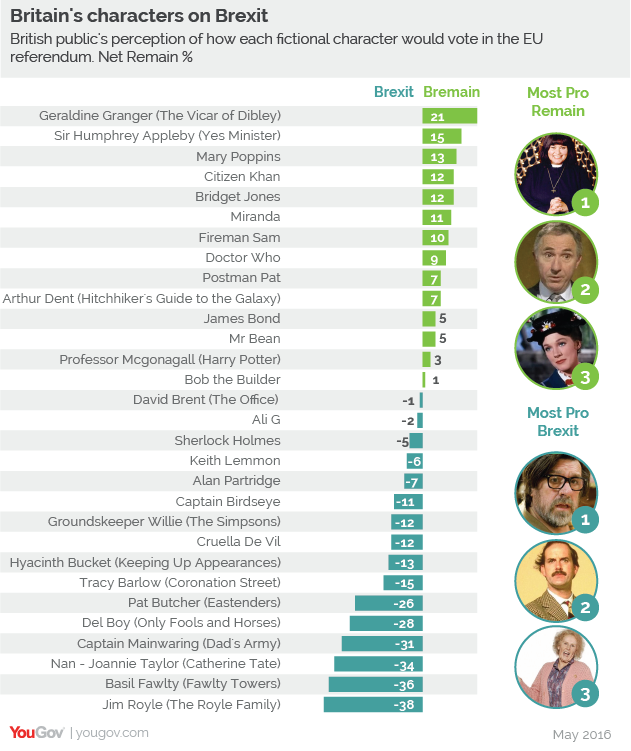kevo
Well-known member
- Mar 8, 2008
- 9,810
Excellent piece in the Financial Times on the economic impact of Brexit. Everyone voting on Thursday should read this:
http://www.ft.com/cms/s/2/0260242c-370b-11e6-9a05-82a9b15a8ee7.html#axzz4CFqR0Dic
Some of the key points below (I had a leaflet through my door this morning with a headline about the £350m a week. How can Leave continue to peddle what is obviously a blatant lie?!)
Immigration
EU migrants tend to be young and are likely to be employed. They contribute more to the UK public finances than they take out and much more than UK born citizens.
What about the £350m a week sent to Brussels?
This figure — widely promoted by the Leave campaign — is not correct. When pushed, the Leave campaign accepts that Britain’s net contributions are much lower after the rebate secured by Margaret Thatcher and payments to farmers, poorer regions and science. Britain does, however, make net contributions to the EU budget of £8.5bn in 2015, about £163m a week. This would be saved once the UK had left the EU and Britain would get to choose how it spent the money currently allocated for farmers and others by common EU rules.
A net contribution of £8.5bn is roughly £1 out of every £100 the British government spends every year, so any savings will be small. The Institute for Fiscal Studies and others have pointed out that if leaving the EU implies slower growth, the net saving would be wiped out through lower tax revenues and higher benefit spending — even if the growth reduction was merely 0.6 per cent. The IFS estimated that if the economic assessments of Brexit were accurate, leaving the EU would cost UK taxpayers between £20bn and £40bn a year.
There is no doubt that the effect of EU membership on national income is more important for the UK public finances than the annual membership fee. This is the dominant issue and a small hit would leave Britain’s public sector worse off.
Overall Conclusion
Rarely has there been such a consensus among economists, as there is on the damage that Brexit would wreak on the British economy. The warning may turn out to be wrong — but it is difficult to ignore.
http://www.ft.com/cms/s/2/0260242c-370b-11e6-9a05-82a9b15a8ee7.html#axzz4CFqR0Dic
Some of the key points below (I had a leaflet through my door this morning with a headline about the £350m a week. How can Leave continue to peddle what is obviously a blatant lie?!)
Immigration
EU migrants tend to be young and are likely to be employed. They contribute more to the UK public finances than they take out and much more than UK born citizens.
What about the £350m a week sent to Brussels?
This figure — widely promoted by the Leave campaign — is not correct. When pushed, the Leave campaign accepts that Britain’s net contributions are much lower after the rebate secured by Margaret Thatcher and payments to farmers, poorer regions and science. Britain does, however, make net contributions to the EU budget of £8.5bn in 2015, about £163m a week. This would be saved once the UK had left the EU and Britain would get to choose how it spent the money currently allocated for farmers and others by common EU rules.
A net contribution of £8.5bn is roughly £1 out of every £100 the British government spends every year, so any savings will be small. The Institute for Fiscal Studies and others have pointed out that if leaving the EU implies slower growth, the net saving would be wiped out through lower tax revenues and higher benefit spending — even if the growth reduction was merely 0.6 per cent. The IFS estimated that if the economic assessments of Brexit were accurate, leaving the EU would cost UK taxpayers between £20bn and £40bn a year.
There is no doubt that the effect of EU membership on national income is more important for the UK public finances than the annual membership fee. This is the dominant issue and a small hit would leave Britain’s public sector worse off.
Overall Conclusion
Rarely has there been such a consensus among economists, as there is on the damage that Brexit would wreak on the British economy. The warning may turn out to be wrong — but it is difficult to ignore.





